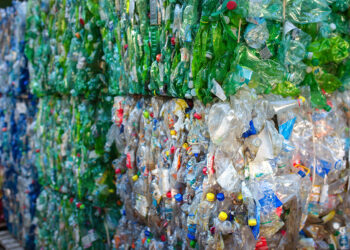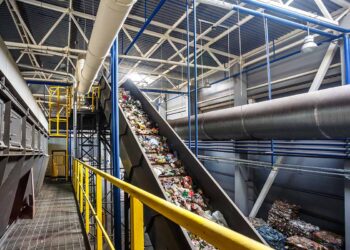The Illinois EPA announced on Jan. 16 it had partnered with Recycle Coach to “provide all Illinois residents in 6,835 units of local government a holistic, locally-tailored, easy to access recycling education platform.”
Illinois EPA Director James Jennings said the app will “provide all Illinois residents with advanced and easily accessible tools to allow them to increase and improve recycling throughout our communities.”
Canadian company Recycle Coach will onboard all the units of local government, setting up localized collection calendars, notifications and reminders that feature real-time, searchable information that is available in multiple languages.
New Jersey has been using Recycle Coach for years, and recently Somerset County announced it had onboarded Recycle Coach for residents.
Somerset County mayor Brian Gallagher said the app “changes the way we communicate information about waste and recycling, and makes it convenient for our residents to stay up-to-date on any changes to their recycling schedule.”
“Residents can access Recycle Coach from their desktop computers, mobile devices or through digital assistants such as Amazon’s Alexa and Google Home,” he added. “By leveraging the power of technology, the platform makes it easier for residents to get disposal information about thousands of household items anytime they need it – and the best part is, it’s free.”
Jeff Galad, Recycle Coach president, told Resource Recycling that in the past three years, the number of cities the company services has exploded after hovering around 800 or 900 cities served for years. It’s now in place in 1,700 locations, with that number jumping to 3,000 as soon as all the cities in Illinois are onboarded.
“The last three years we really positioned ourselves as a platform and a piece of technology that is waste-agnostic, legislatively agnostic and service provider-agnostic, and I like that position, because it allows us to work with anybody and everybody, including customers that might not have a recycling program,” he said. For example, the app can be used for organics, yard waste, bulky pickup or other material streams cities are working to divert.
This year marks the company’s 25-year anniversary, Galad said, and in that time it evolved from providing printed pickup schedules for municipalities to the app it is today. The future, he added, may contain AI and other upgrades, but those are projects the team is working on slowly and intentionally.
“Our mission is to help solve local government challenges or local waste and recycling challenges,” he said. “We’re not funded by anybody but our customers.”
Recycle Coach is working with several more U.S. states that have expressed interest, Galad said, and is also expanding into colleges and universities. Circular Materials, the Canadian producer responsibility organization spearheading the national extended producer responsibility program, has also contracted with Recycle Coach.
“You don’t have to be a municipality to work with us, or a not-for-profit,” Galad said, adding that as Recycle Coach grows, “we want to stay true to our values of understanding those challenges in waste and recycling and building technology to complement them.”
In November, South Carolina launched the “Recycle Here SC” app, which the state Department of Environmental Services developed alongside PalmettoPride and the S.C. Beverage Association. It was funded by the federal Solid Waste Infrastructure for Recycling grant.
Myra Reece, SCDES interim director, said the department’s web-based recycling information tool was extremely successful, and the app “will make access to recycling information more convenient, reduce confusion and lessen contamination of recyclable materials.”
Recycle Here SC lists all the recycling programs in the state. From there, users can search county-specific recycling information or filter for programs that accept specific items. The app also allows users to get notifications about special collection events and recycling, composting, litter prevention and waste reduction programs.
“The Recycle Here SC app is meant to complement pre-existing mobile apps that some counties already have in place, as it focuses on information for the state instead of the county level,” according to the press release. “For the counties that don’t have a recycling app, this new product puts the information right at their residents’ fingertips.”
Further, internet giant Google recently supported the Swedish recycling app Bower, helping it expand its AI-visioning model worldwide.
The recent examples illustrate how app-based recycling education has been gaining steam. In 2021, RRS released a study that surveyed 3,277 local recycling programs in the U.S. and 282 recycling programs in Canada in 2020 and 2021, finding that Canadians were more likely to use search tools and apps.
Back then, 28% of the Canadian programs surveyed used at least one app, representing 70% of the population in the survey. However, only 9% of U.S. programs, representing 17% of the population surveyed, reported using a search app or tool. More recent data wasn’t available.
However, there has been industry push for years on the need to update recycling outreach methods. In 2017, Emily Coven, founder of Recyclist, a green technology company, wrote an op-ed in Resource Recycling, noting that “it’s simply time to change the way we play the outreach game.”
“More than 50 percent of residents say they turn to the internet when they need recycling information, according to a recent Institute of Scrap Recycling Industries (ISRI) survey,” she wrote. “It seems odd, then, that over half of the municipalities we’ve evaluated are not following basic best practices when it comes to providing information online.”
























